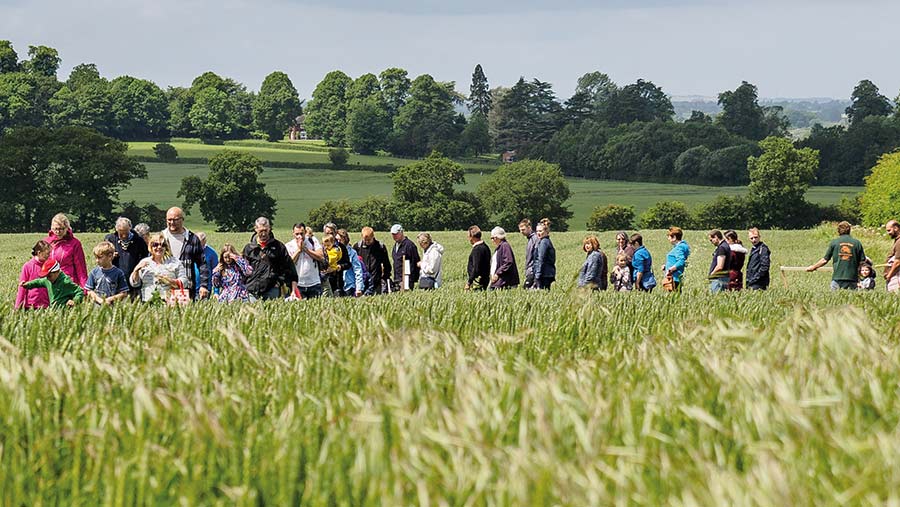Opinion: Farmers have a duty to their communities
 OFS Whitacre Hall © Richard Osborne
OFS Whitacre Hall © Richard Osborne A common thread running through the many tributes to our late Queen is her devotion to duty and service. Even the least ardent royalists among us can find inspiration from her life and commitment to her role.
To some, these may seem old-fashioned ideals, but I did stop and wonder if, as a lowly tenant farmer, I could seek encouragement in some small way from the Queen’s magnificent example.
There is a commitment to duty and service in most farmers to a greater or lesser degree.
See also: Farming industry pays tribute to Her Majesty the Queen
Granted, not many devote their lives to their nation (although I know several who seem to devote their lives to their farms, to the exclusion of almost anything else – sometimes the exclusion of their families, too).
But there are not many of us who do not help out with the village fete, sit on parish councils, clear snow and fallen trees, give a bit of time to charitable work, or pull the odd stuck motorist out of a ditch.
Dutiful farming neighbours help each other out. Duty to the animals you keep is sacrosanct.
The farm can also be a place to welcome visitors. Open Farm Sunday is a great example of this. And if you’re hosting the hunt or a shooting party, you get to wear quaint costumes as well.
Our farm bonfire night for the school Parent Teacher Association may not be on the same level as a Buckingham Palace garden party, but still has a sense of civic hospitality about it.
As rural communities become more disjointed, with many settling in the countryside with no ties to a place, but purely because it is somewhere nice to live, the farm may no longer be the heart of many villages.
But the farmer is one of the few people left with a real connection to their community and their sense of place in it – and among the very few whose living depends on their local area.
Perhaps we, too, are in danger of becoming an arcane institution?
I am sure we’ve all heard millions of stories about “incomers” and their crimes, objecting to church bells, cockerels, tractors and so on, or trying to muscle in on local communities to bend them to their strange urban views.
But sometimes they are genuinely keen to learn more about that archaic phenomenon – the local farmer – and can be quite engaging if you take the time to talk to them.
Some of these types even view the farmer as a “real” man or woman. I don’t claim to be either of these things, but I do at least own a selection of hammers and a telehandler.
We may, at times, seem to hark back to a past era. I can still recall a farming acquaintance of mine, visiting his daughter and prospective son-in-law and needing to finetune some part of his Land Rover, bustling around the lad’s garage in bemusement saying “what kind of a man doesn’t have a hammer in the house?”
I think this summed up the reasons that the potential match was shortly afterwards called off.
The Queen is dead… long live the King. The constancy and enduring nature of monarchy is matched by the enduring presence of some farming dynasties.
Royalty, like farming, is a family business.
And if you’re unlucky enough to be surrounded by relocating townies, you can be the constant. Or at least king for a day…

